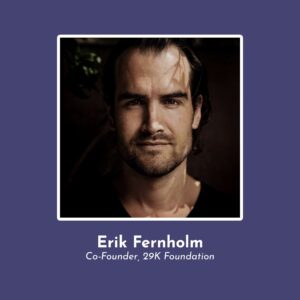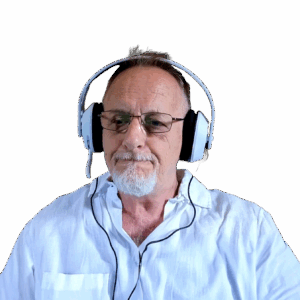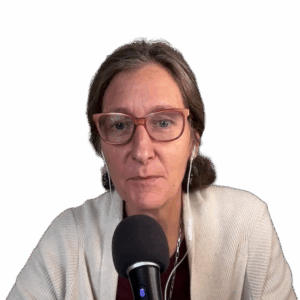
Ep 144 | Erik Fernholm
Erik Fernholm: “Inner Development Goals: Cultivating Change from the Inside Out”
Show Summary
The deeper we dive into the complexity of the metacrisis, the more it becomes apparent that the changes we desire in our communities, governments, and societies must start with individual mindsets and behaviors. But what practices can help us cultivate this shift in consciousness?
Today, Nate talks with Erik Fernholm about The Inner Development Goals, a framework designed to foster the skills and capacities needed to tackle the existential challenges we face. Erik unpacks the nuance and complexities of creating such a massive project, and discusses how he’s used them in his own life to foster personal change.
How can we shift from dominant societal values, like individualism, towards ones rooted in complexity and contextual awareness? Why is it important to share these journeys of personal development and grow together as communities? How can each of us make inner changes in our own lives to reflect a more interdependent and resilient outer world?
About Erik Fernholm
Erik Fernholm is a father, an award winning global speaker and bridge builder. Through his background in cognitive neuroscience and happiness research, he has spent the past 15 years exploring which fundamental shifts in relationships, skills, and worldviews are needed for us to become sustainable and generative at an individual and collective level. Erik’s work mainly focuses on communicating the link between inner development and outer change as well as creating spaces for it to unfold.
Erik is the co-founder of The Inner Development Goals, a communication framework mapping what inner shifts are needed to reach the UN’s Sustainable Development Goals, implemented in corporations, governments and through its 750 hubs globally. Erik is the Chair of the Ekskäret Foundation where he co-founded the 29k Foundation/Aware platform, which has scaled inner development processes to over 100,000 people in 160 countries.
In French, we have a motto that says that a simple drawing is often better than a long explanation. Jean-Marc Jancovici Carbone 4 President
That’s very understandable because with left atmosphere thinking, one of the problems is that you see everything as a series of problems that must have solutions. Iain McGilchrist Neuroscientist and Philosopher
We can’t have hundreds and hundreds of real relationships that are healthy because that requires time and effort and full attention and awareness of being in real relationship and conversation with the other human. Nate Hagens Director of ISEOF
This is the crux of the whole problem. Individual parts of nature are more valuable than the biocomplexity of nature. Thomas Crowther Founder Restor
Show Notes & Links to Learn More
Download transcript00:00 – Erik Fernholm info + works, 29k Foundation, Inner Development Goals (IDG) initiative
03:16 – Pella Thiel + TGS Episode
04:04 – IDG Framework
04:15 – UN Sustainable Development Goals
05:17 – Our Psychological Immune System
08:49 – Humans are shaped by social norms
08:55 – Affective forecasting + impact on behavioral outcomes
11:48 – Peter Senge
13:59 – Multipolar traps
15:54 – IDG Hubs
18:47 – IDGs in Costa Rica
19:36 – Ekskäret (Oak Island) Foundation
19:38 – Tomas Björkman + TGS Episode
19:54 – Niklas Adalberth, Norrsken Foundation + Klarna
21:47 – Impact investment in Sweden, 38 times the global average (**this fact may be misconstrued, data suggests that 38% of funding goes to impact startups)
23:13 – Rosa Parks, Highlander Folk School
26:53 – Psychopaths and behavior change
28:14 – The Behavioral Stack
28:37 – **5% of our decisions are conscious
32:00 – Supernormal stimuli
32:51 – Templeton Foundation
35:37 – Pennebaker paradigm
36:27 – Jonathan Haidt + TGS Episode
37:35 – The impacts of cognitive mechanisms in expressive writing
37:51 – Expressive writing and trauma
39:05 – Tom Murphy + TGS Episode
39:14 – Myers-Briggs personality types
40:30 – Theory of adult development + more info
53:56 – Scandinavian folk schools
55:42 – Daniel Schmachtenberger + Bend Not Break series, TGS Episode on Artificial Intelligence, TGS Episode on Naive Progress; Zak Stein + TGS Episode; Nora Bateson + TGS Episode
56:12 – Indy Johar
1:00:00 – 56% of young people think that humanity is doomed
1:03:10 – Maslow’s hierarchy + Maslow on self-transcendence
1:09:19 – RSA Capabilities for Life framework + EU Green Comp
1:11:22 – Aware App
1:13:35 – Barbara Fredrickson, Love 2.0
1:13:58 – Broaden and Build theory of positive emotion
1:18:30 – Left hemisphere thinking
1:25:52 – Mobile phone usage Sweden
1:27:16 – Postmodernism






